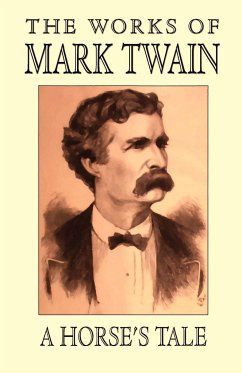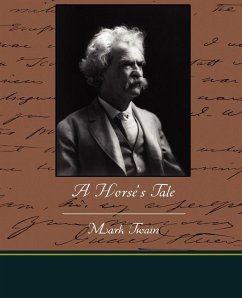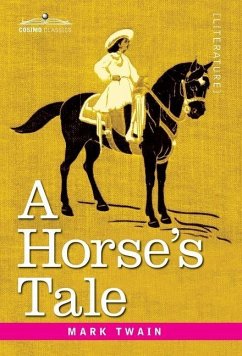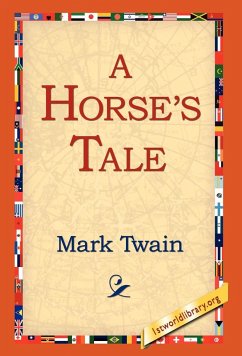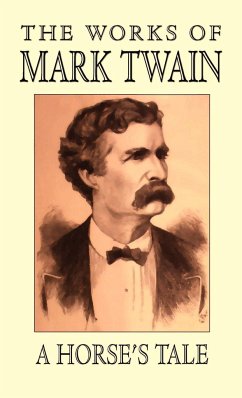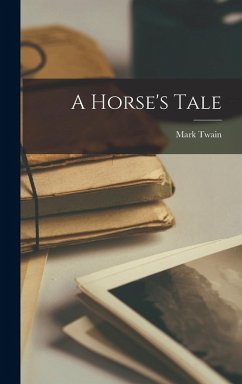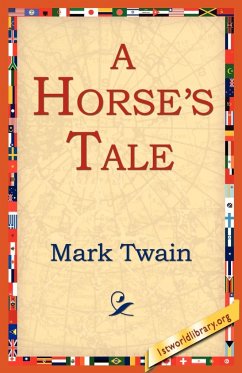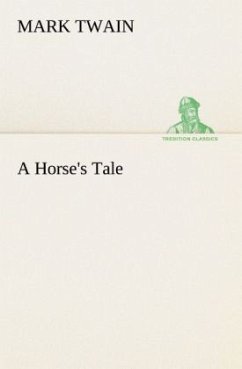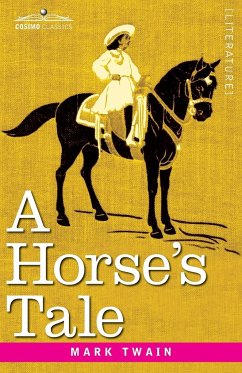
A Horse's Tale
Originally Illustrated
Versandkostenfrei!
Versandfertig in 1-2 Wochen
11,99 €
inkl. MwSt.

PAYBACK Punkte
6 °P sammeln!
"I am Buffalo Bill's horse. I have spent my life under his saddle-with him in it, too, and he is good for two hundred pounds, without his clothes." -Mark Twain, A Horse's Tale (1907) A Horse's Tale (1907) is a story written by Mark Twain mostly in the voice of Soldier Boy, Buffalo Bill's horse, who communicates with the reader and with other animals. The main character of this tale, however, is nine-year-old Cathy, who lives with her uncle, a general at a cavalry post in mid-19th century America. Cathy is befriended by Buffalo Bill, who gives her his horse. Cathy's character is said to be insp...
"I am Buffalo Bill's horse. I have spent my life under his saddle-with him in it, too, and he is good for two hundred pounds, without his clothes." -Mark Twain, A Horse's Tale (1907) A Horse's Tale (1907) is a story written by Mark Twain mostly in the voice of Soldier Boy, Buffalo Bill's horse, who communicates with the reader and with other animals. The main character of this tale, however, is nine-year-old Cathy, who lives with her uncle, a general at a cavalry post in mid-19th century America. Cathy is befriended by Buffalo Bill, who gives her his horse. Cathy's character is said to be inspired by Mark Twain's daughter, Susy Clemens, who died young at age 24. This replica of the original edition of A Horse's Tale, with illustrations by well-known American illustrator Lucius Hitchcock, is comical and sharp. It also offers Twain's social commentary about man's cruelty to animals and specifically regarding bullfighting in Spain.




